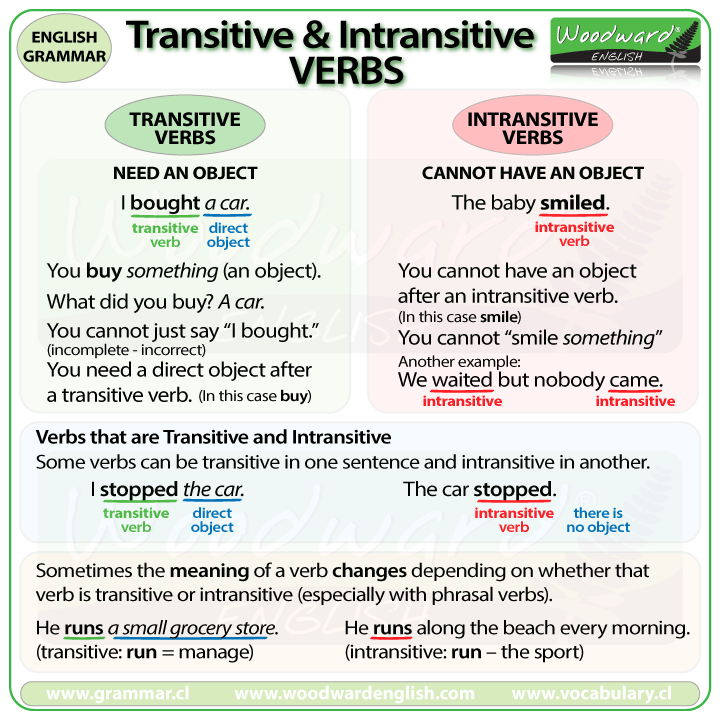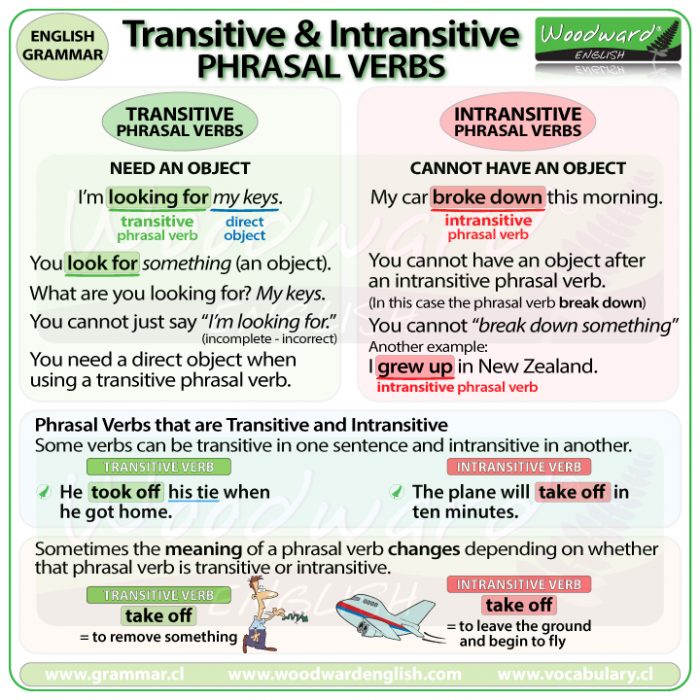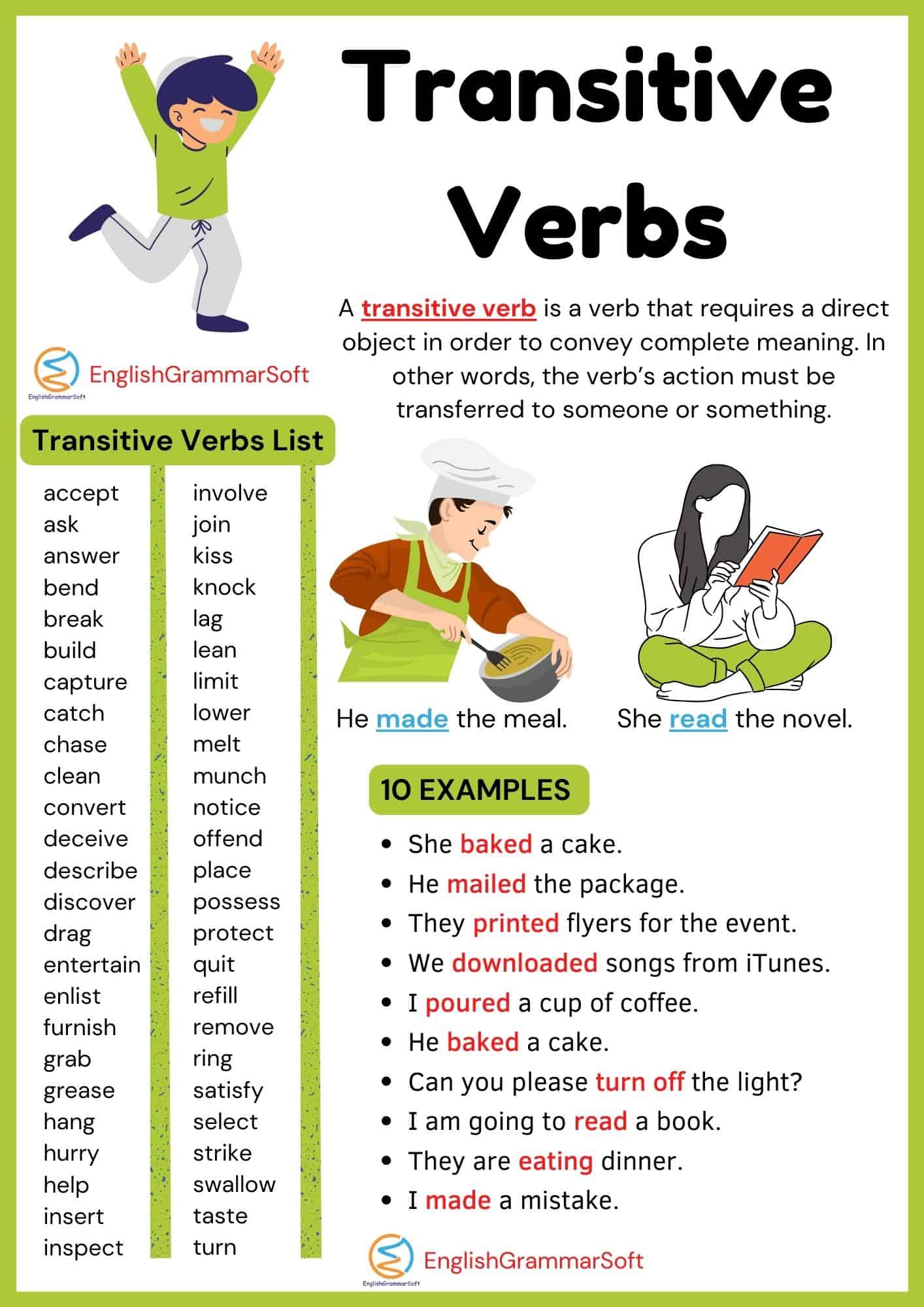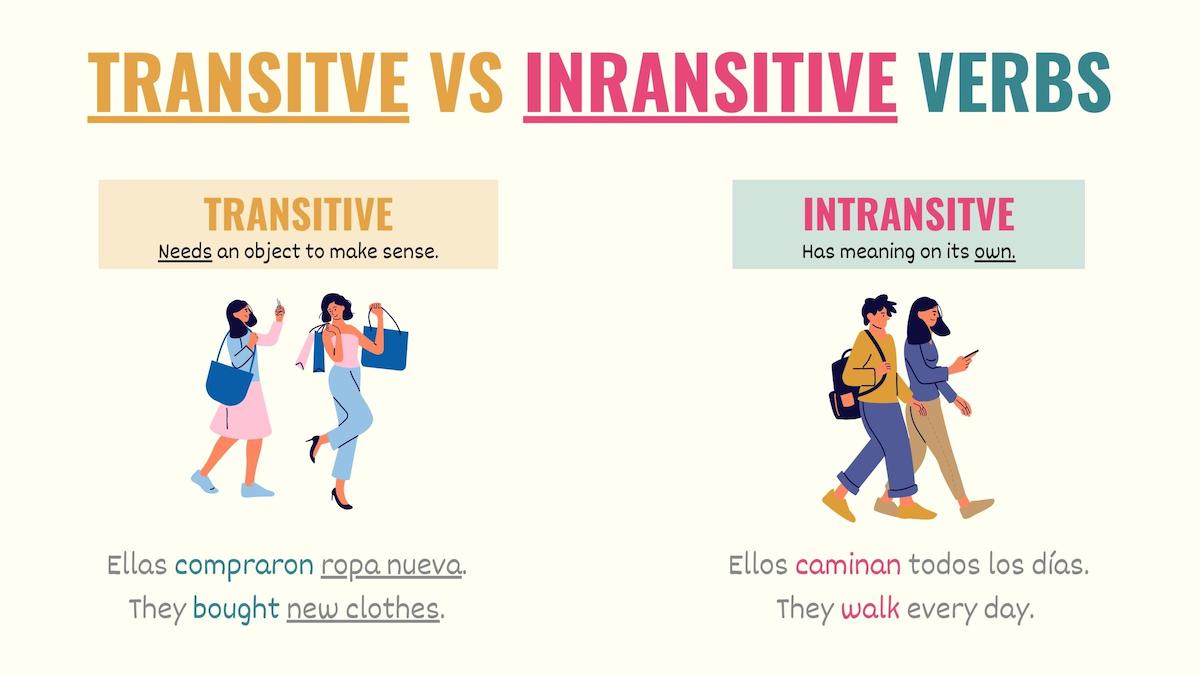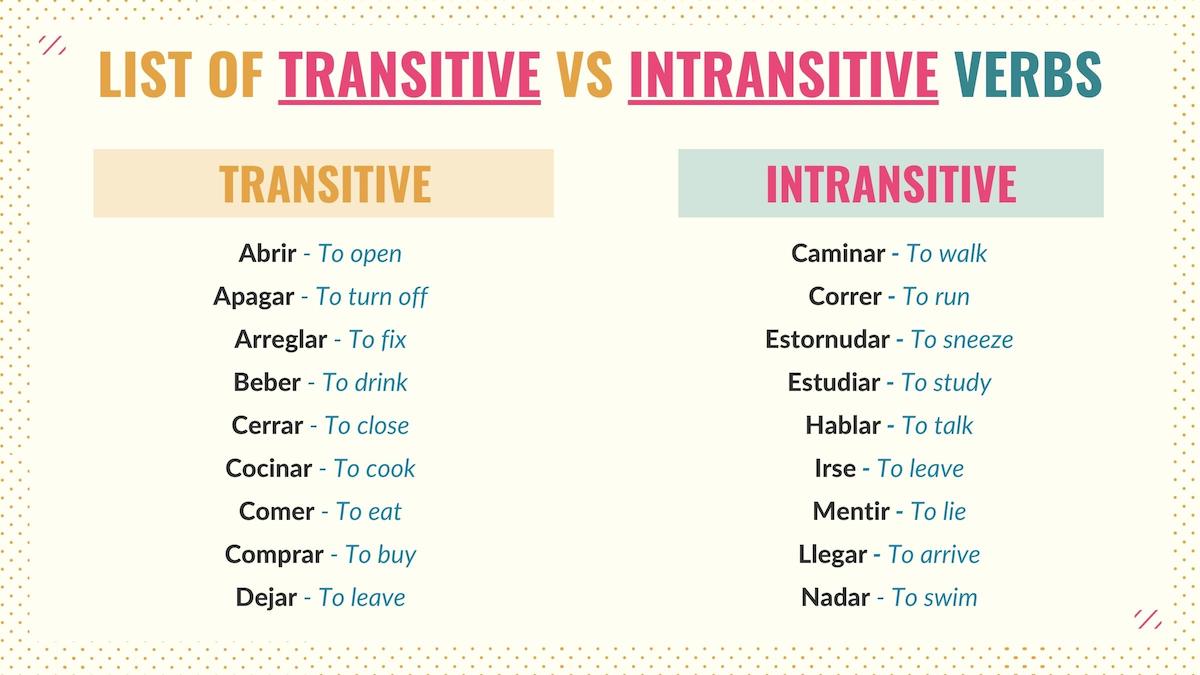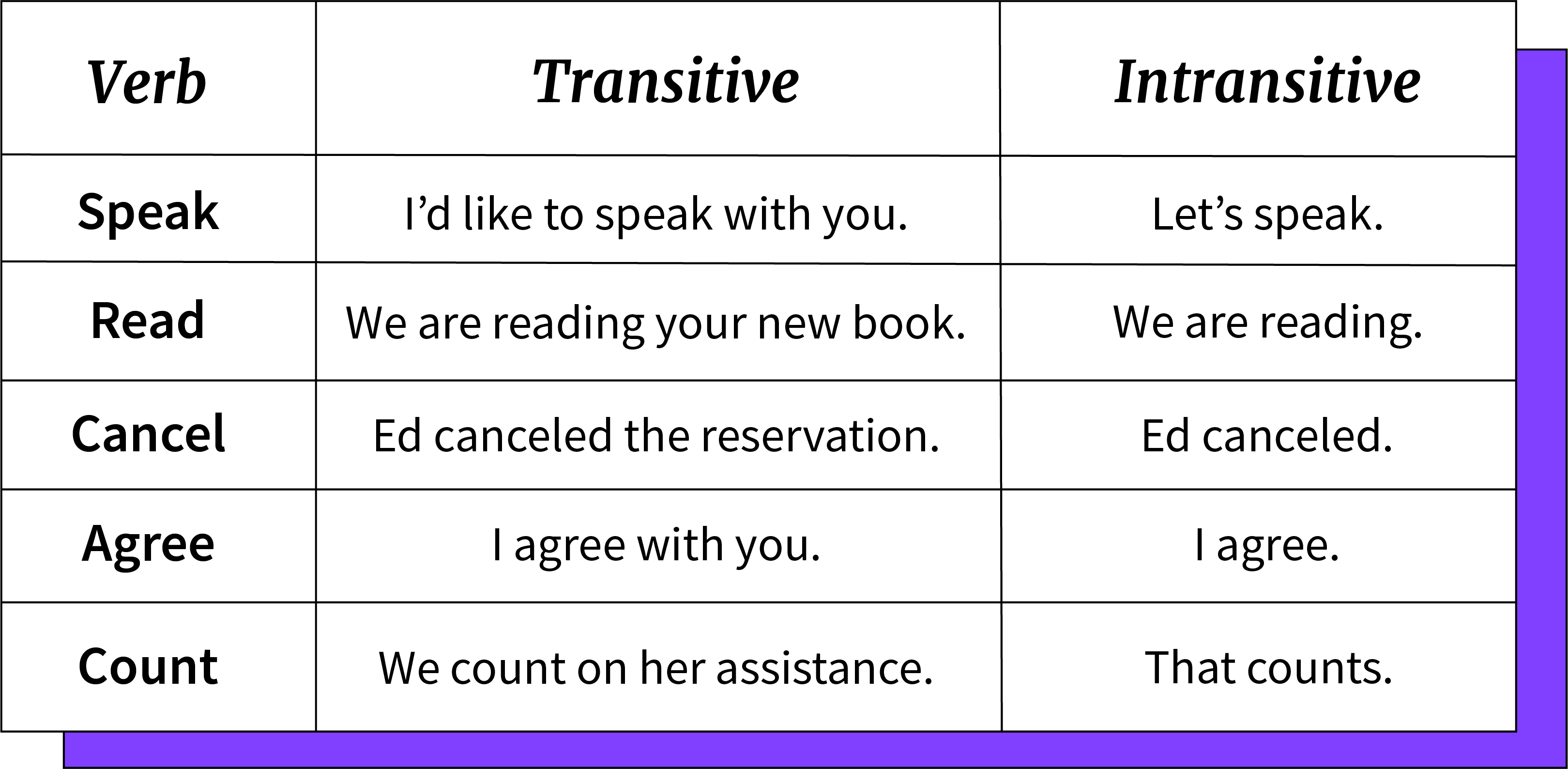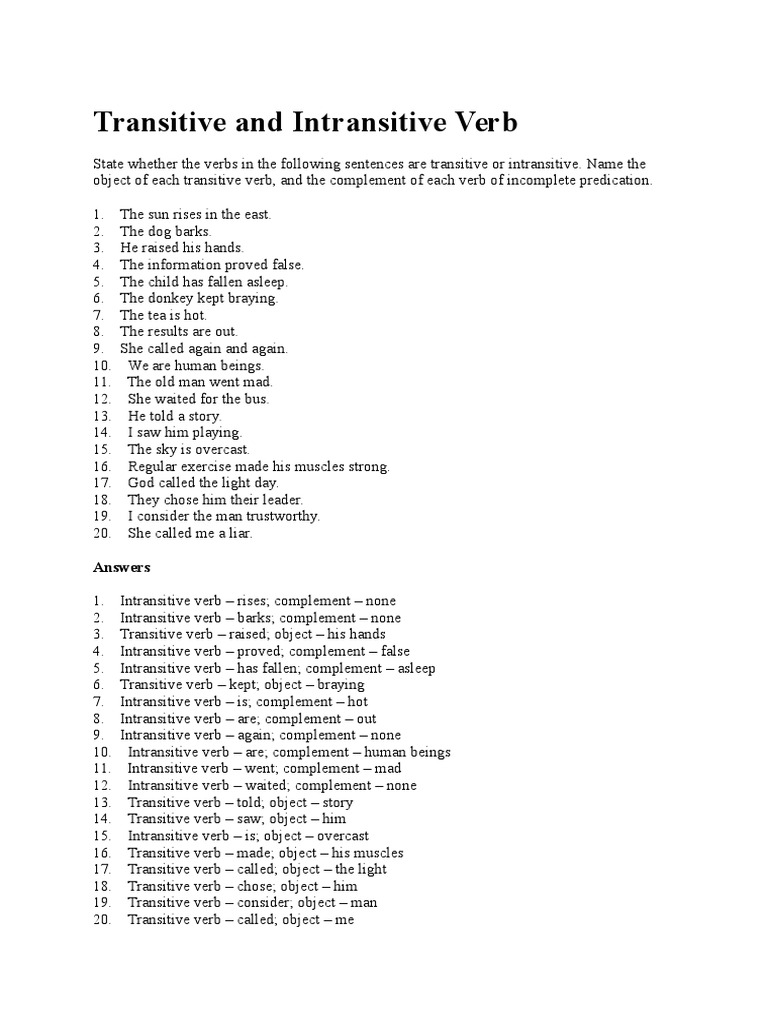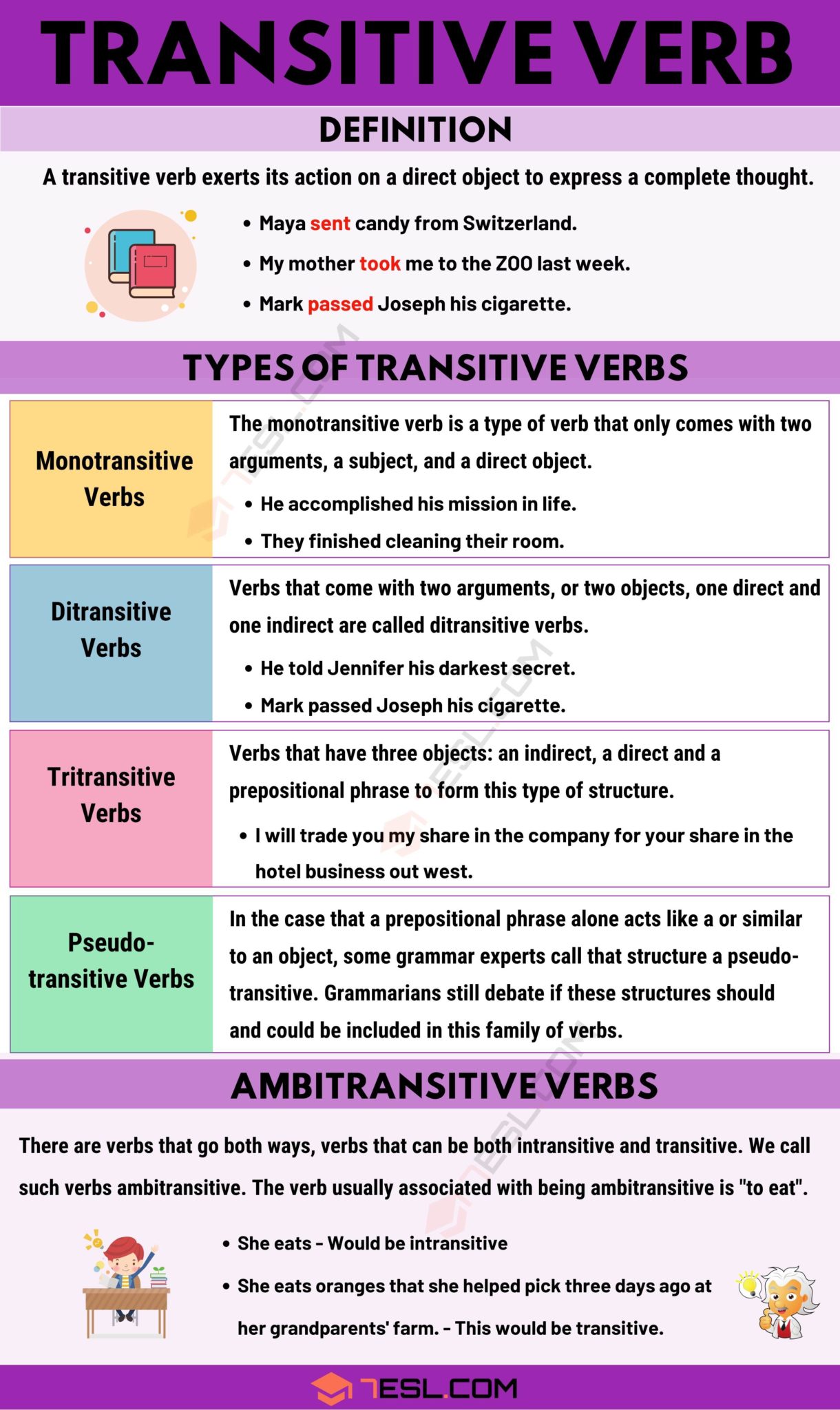Neat Tips About How To Tell If A Verb Is Transitive Or Intransitive
Transitive and intransitive verbs refer to whether or not the verb uses adirect object.
How to tell if a verb is transitive or intransitive. Now let’s go into more detail about. Result in grammatical terms, a transitive verb is a verb that takes an object, whereas an intransitive verb is a verb that does not take an object. Some verbs (e.g., “sleep,” “walk,” “leave”) do not take a direct object because they are not used to express acting.
Result verbs can be either transitive or intransitive, depending on whether they take a direct object (i.e., a noun or pronoun) to indicate the person or thing acted upon. A transitive verb has an object. In other words, the verb is transferring its.
Result a verb is transitive if it requires a direct object (i.e., a thing acted upon by the verb) to function correctly and make sense. The difference between transitive and intransitive verbs is that transitive verbs require a direct object. Result you can categorize all verbs into two types:
Transitive verbs are those which can have direct objects (persons or things with which the action is connected). Result to use a transitive verb, then, we need to specify what the verb is happening to by giving an object after the verb. Result quick summary on transitive vs.
What is an intransitive verb? An intransitive verb is a verb that does not take a direct object. Transitive verbs are verbs that use a direct object.
Result in english there is no way to tell whether a verb is transitive or intransitive simply by looking at it, so, instead, you need to look at how it is being used in the. Result so, we have the following definitions: Intransitive verbs don’t need an object to make.
A sentence with a transitive verb has a subject, a verb and a direct object. Result transitive verbs. Result transitive vs intransitive verbs.
Result transitive vs. Unlike intransitive verbs, transitive verbs require a direct object to indicate the person or thing receiving. Result transitive verbs explained:
An intransitive verb has no object. In each of these sentences, the verb is transitive because it is followed by an object. Transitive verbs use a direct object, which is a noun that.
Grammar & usage usage notes. Result the collins dictionary defines a transitive verb as “a verb accompanied by a direct object and from which a passive can be formed, as ‘deny’, ‘rectify’, ‘elect’”. How to use transitive verbs.

